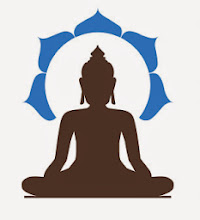
Buddhism and Democracy
8. The institution the Buddha established was the Sangha or monastic community, which functioned on largely democratic lines. Within this fraternity, individuals were equal, whatever their social class or caste origins. The only slight difference in status depended on seniority of ordination. Individual freedom, exemplified by liberation or enlightenment, was the primary focus of the entire community and was achieved by cultivating the mind in meditation. Nevertheless, day to day relations were conducted on the basis of generosity, consideration, and gentleness towards others. By pursuing the homeless life, monks detached themselves from the concerns of property. However, they did not live in total isolation. Their custom of begging for alms only served to strengthen their awareness of their dependence on other people. Within the community decisions were taken by vote and differences were settled by consensus. Thus, the Sangha served as a model for social equality, sharing of resources and democratic process.
His Holiness The 14th Dalai Lama







No comments:
Post a Comment